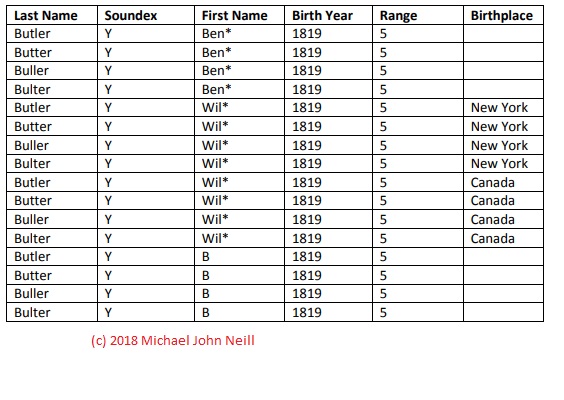 I’ve been reviewing in bits and pieces my copy of the Genealogy Standards Manual written by the Board for Certification of Genealogists (BCG) . The nice thing about it is that one can read it in bits and pieces or in longer sessions.
I’ve been reviewing in bits and pieces my copy of the Genealogy Standards Manual written by the Board for Certification of Genealogists (BCG) . The nice thing about it is that one can read it in bits and pieces or in longer sessions.
There’s a great deal of food for thought in the small volume about research, analysis, citations, and process.
But one thing I don’t really see mentioned as much as I would like is research process. Research logs are mentioned. But sometimes how you searched is an integral part of the analysis process, particularly when database queries are used to access records. If someone was not found in a record set and the record set was too large to practically search manually or a manual search was physically impossible, then then how the database was queried matters or how the index was used matters.
Sometimes it matters because conclusions can be based upon someone not being in a record and other times it matters because seeing how a genealogist searched and came up empty handed helps others to analyze how thorough their process was.
My earlier post on “Tracking Your Process.” It’s brief, but to the point.

No responses yet